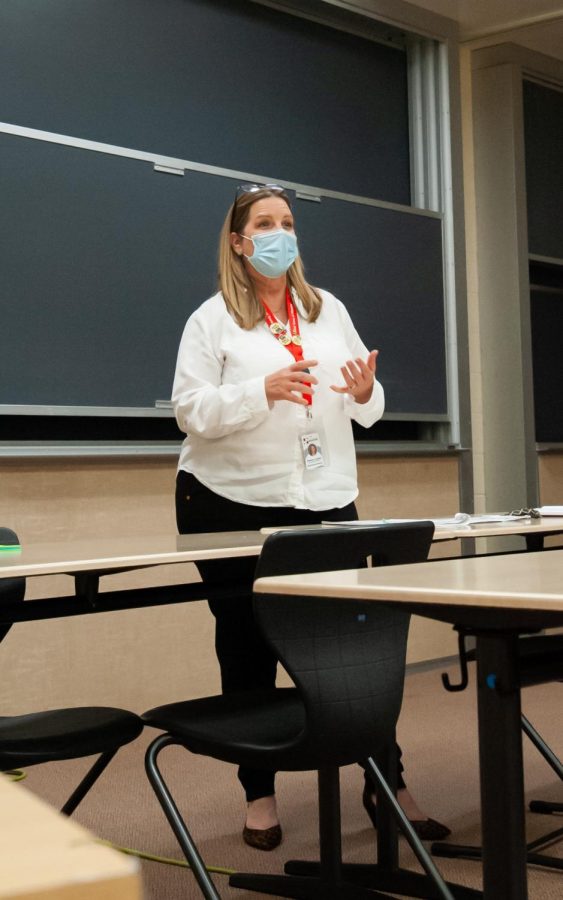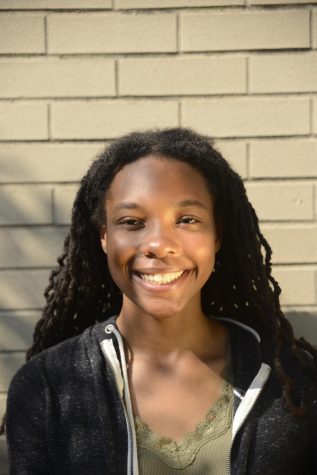SADD holds meeting on personal growth and wellness after school today
A FREE BIT OF ADVICE Speaking to the club about identifying triggers, Ms. Valerie Zemaitis, assistant principal and head of social-emotional learning, gives pointers about personal wellness.
October 11, 2021
Focusing on personal growth and wellness, SADD has been conducting meetings surrounding mindfulness and maintaining a balanced lifestyle. Meetings are predominantly student-driven—for their meeting today, juniors Francesca Campisi and Riley Kazragys, will lead an interactive presentation regarding coping mechanisms for handling stresses in life, which will include activities students can participate in, such as yoga.
“I think our participation for SADD has grown tremendously,” Mrs. Brianne Sabaitis, science teacher and SADD co-sponsor, said. “What’s nice is having so many very eager participants wanting the position to be a leader. If you want to just be a member you can totally just be a member, but we want to give an opportunity to work on leadership skills. As the years have gone on, volunteers for leadership have our volunteers for leadership have grown tremendously, and they are very eager to take on some of these topics. I’m excited to see what they come up with to present for our members.”
The club tends to have about two guest speakers per year: for their September meeting Social-Emotional Learning leader Ms. Valerie Zemaitis discussed techniques for becoming aware of one’s own triggers. In November, the club looks forward to a meeting with two more speakers—the founders of Women Empowerment Club Riley Ramirez and Kate Krawzyck, seniors. SADD does more than just warn students of destructive decisions, according to Ms. Kristen Szafasz, social studies teacher and co-sponsor, but seeks to empower its members to take control of their personal growth and well-being
“I think the misconception about SADD is that all we do is talk about mistakes people made, or ways that they should prevent themselves from doing something destructive, like drugs or alcohol,” Ms. Szafasz said. “We’re not there to preach. We are more there as a support factor. (Our function is more) ‘these are the resources, these are the statistics, these are the current events that have been happening.’ A lot of life lessons are learned.”




